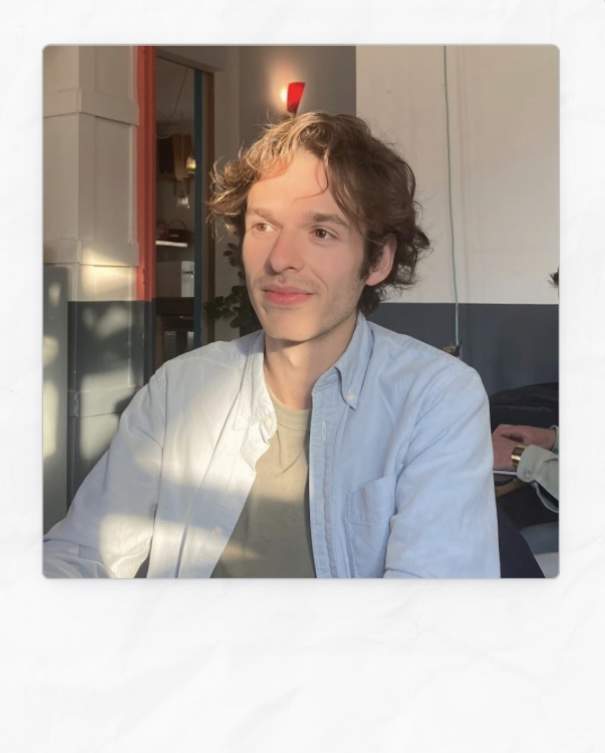discipline and punish
michel foucault, 1975
⠀
Seems to be a history of criminology, but Foucault is making a much deeper analysis
- signaling where the structures of power lie in society
- the relationship between people in power and the average citizen
Foucault strong disliked the term "history" He argued that the notion of history as constant progress leading to the endpoint of current civilization is wrong. He wanted to explore how structures of power have changed over time.
He starts Discipline and Punish describing punishments from 1757 and arguing that one has to do more than just assume moral superiority and dismiss those times as barbarian. That is the key to understanding the similarities between the power structures and relations of the 1750s and today.
It is important to understand that old punishments like those of Ch.I happened before the American and French revolution ∴ not modeled after the Enlightenment, but after a renaissance interpretation of Hobbes’ Leviathan and Machiavelli's The Prince.
Punishments were crafted to uphold the Social Contract ∴ crimes were seen as a direct attack on the authority of the king. Here lie the clues to understand the function of the penal system of the 1750s: Neither justice nor fairness, but maintaining social order.
- Extreme punishments were a deterrent of criminal behavior and reinforcement that the sovereign was still upholding his end of the social order.
What happens when the power structure no longer serves the needs of the people?
These extremes public punishments had 2 major unintended consequences. First, the population frequently agreed that punishment>crime and often sided with the criminal, questioning the authority of the sovereign. Second, since public punishments leave no doubt of who is in power, whenever people were not receiving their end of the social contract, there was no doubt as to who to blame.
People of power soon realized that in their society, the will of the people often had influence over which people were in positions of power. This was very inconvenient for the sovereigns, as it made reigning for long periods of time statistically challenging.
1757-1837: In order to make power more sustainable, drastic changes had to be made. Foucault argues that the reasons for these changes don’t have to be evil per-se, politicians often only looked at ways of keeping society in peace.
- Public executions with severe punishments
- 1790s: Public executions with standardized punishments (Guillotine)
- Public executions with prisoners being transported in sealed vehicles
- Public executions with masks
- Executions moved into courthouse
- Executions moved to prisons and are now completely private.
Impossible not to be aware of → Abstract, far, unimportant
Why do people who want to maintain structures of power prefer systems like this?
By 1837, two main things had changed
Emergence of the modern prison system. Much more efficient and effective way of waving power over people.
Prisoners had every minute of their days scheduled → not much time for thinking
⠀
Surveillance, Normalization, Examination
- 24/7 Surveillance of prisoners
- Normalization of how a "good prisoner" should think and behave
- Constant examination, grading how much of a "good prisoner" you are.
Foucault thinks this system might have its origins in the works of Jeremy Bentham.
Panopticon: Building designed so that one in power can see everything every prisoner is doing all the time, but the prisoner is unable to know when he’s being watched. Bentham argued that this would leave prisoners with no choice but to behave as expected every single second.
All this is much more than just a narration of prison history. Foucault is analyzing how Bentham’s Panopticon is a way of obtaining "power of mind over mind." What stops mental institutions, military trainings, factories, multinational corporations or schools from implementing this design?
No need to treat employees/patients/students/soldiers as prisoners. Instead, by keeping the leash very loose, people in power could set narrow parameters of what it means to be a good employee/patient/student/soldier.
If people do not feel like prisoners they will even police themselves to adhere to the normalized way of behaving, because their work life is one of constant surveilling (clocks, deadlines, supervisors, other employees), normalization (speaking, acting, dress codes, political correctness, team player) and examination (monthly evaluations).
Surveillance, Normalization and Examination has become such a good system of controlling human behavior that it is now embedded in our culture, social circles, media…
What’s insidious about how modern power keeps people in control today is that people are both subjects being controlled and also active participants in the system that (unknowingly) supports the current power structure.
Foucault argues that the new goal of the modern penal system is also neither fairness nor justice, but the production of harmless, non-rebellious, working, tax-paying productive citizens who follow the rules and are satisfied with the normalized standard of what it means to be a person, according to people above.
This explains the stark difference between sentencing of Blue and White Collar crimes:
- CEO who commits Tax Fraud in the millions vs Store Bulgar
- CEO doesn't need much correcting in the eyes of those in power (keep doing everything you’re doing, just pay taxes) - 10% go to jail
- Store Bulgar needs to adhere to how a good citizen is supposed to behave - 90% go to jail
The goal is reforming criminals to fit a preexisting mold of what a normal person is, not direct retribution for the crime.
- Sentences drop when prisoners cooperate: as long as you’re willing to reform yourself into the standardized version of what a human should be, it doesn’t really matter what the sentence was.
People who never change and never reform will eventually end up with life sentences. Foucault argues that it is those kinds of people that are fascinating to us as "normal people." He thinks we love criminals so much because when they refuse to play by the rules of society, they show us what we really are: the law abiding and active participants in a massive global prison.
⠀
Panopticon = modernity
Constantly being disciplined and reformed into good employees, consumers, students, voters –internalized expectations of ourselves given to us by someone in a position of power.
We’re given standards by TV Shows, Movies, Books, etc. We have internalized standards of how we should look, what beauty is, what you should care about, what you can and can’t say, etc…
No prison of method of torture ever devised that can doo to people what they willingly do to themselves in our modern social prison. We live in a Panopticon.
We have created a world where we are in constant surveillance by ourselves. Surveillance by looking in the mirror.
Genealogy of the modern soul. The media even gives you the vocabulary you have ∴ the only vocabulary you have to think of yourself as a person
Billy the Kid, Bonny and Clyde, what happens when you put a criminal beloved by the people in the execution room?
note mentions
works under writing are original, my notes a mix of thoughts with quotes from the artwork subject of the note. about · contact
⠀
⠀
writing
- oct 2023 · on numbers
- aug 2023 · after cinema
- oct 2022 · on cinema
- ongoing · on ai
⠀⠀
books
- beginning of infinity, david deutsch
- desierto sonoro, valeria luiselli
- llano en llamas, juan rulfo
- recuerdos del porvenir, elena garro
- laberinto de la soledad, octavio paz
- hitchhicker's guide to the galaxy, douglas adams
- amor en los tiempos del colera, gabriel garcía márquez
- homo deus, yuval noah harari
- salvar el fuego, guillermo arriaga
- a moveable feast, ernest hemingway
- ride of a lifetime, bob iger
- sin querer queriendo, roberto gómez bolaños
⠀⠀
articles
- to firmly drive common prosperity, xi jinping
- how the enlightment ends, henry kissinger
- people aren't meant to talk this much, ian bogost
- after babel, jonathan haidt
- the year of fukuyama, richard hanania
- ai–mort de l'art ou renouveau de la culture?, sébastien piquemal a
- will scaling work?, dwarkesh patel
- software 2.0, andrej karpathy
- roger federer as religious experience, david foster wallace
- recurrent neural networks, andrej karpathy
⠀⠀
film
- century of the self, adam curtis
- hitchcock vs hitchcock, andré bazin
- why marvel movies aren't cinema, martin scorsese
- succession, jesse armstrong
⠀
philo
- paragraphs on conceptual art (!), sol lewitt
- discrete image, bernard stielger
- how to do philosophy, paul graham
- taste and design, paul graham
- aristotle invented the computer, chris dixon
- la peinture de manet, michel foucault
- the question concerning technology, martin heidegger
- l'écrit, l'écran, l'ésprit, anne alombert
- discipline and punish, michel foucault
- modernist painting, clement greenberg
- the revolution will be uploaded (!), peter snowdon
⠀
⠀ ⠀
⠀ ⠀
writing keeps ideas in space
speech lets them travel in time
we use paintings to decorate space
and music to decorate time
⠀ ⠀
⠀ ⠀
find the way by moonlight
see the dawn before
the rest of the world
⠀ ⠀
⠀ ⠀
unconscious time, no peace of mind,
falling in space but still alive.
sketching the future in a single line,
everything's spinning, cannot sit down.
moments in space, places in time,
thoughts penciled in, now come to life.
⠀ ⠀
⠀ ⠀
As of today, no one knows how to translate paintings, flowers or music into language. Their beauty is implicit and exclusive to their form, which is why it's so hard to explain how a particular piece of art makes us feel.
⠀ ⠀
⠀ ⠀
⠀⠀
⠀
notes
⠀
symbols
- ∴ (therefore)
- → (if then)
- ↔ (if and only if)
- ⤷ (consequence of)
- ≔ (definition)
- ⫫ (independent from)
- ∵ (because)
- ∃, ∄ (there exists/does not exist)
- ∈, ∉ (belongs to/does not belong to)
⠀
⠀
⠀
⠀
this is a collection of notes that i've written over time, mostly for myself. in the spirit of working with garage doors open, i've published them and open sourced this website.
⠀⠀
notes
- discipline and punish, michel foucault
Eduardo Gonzalez Ortiz

